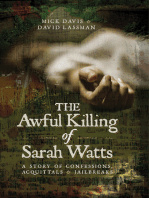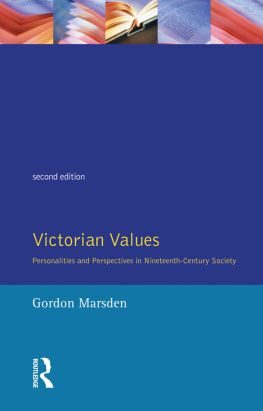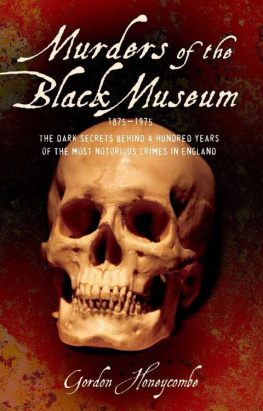The Adventures of a Victorian Con Woman
Them as has money and no brains is made for them as has brains and no money*
* Mary Braddon, 18351914, novelist.
The Adventures of a Victorian Con Woman
The Life and Crimes of Mrs Gordon Baillie
Mick Davis and David Lassman
First published in Great Britain in 2020 by
Pen & Sword History
An imprint of
Pen & Sword Books Ltd
Yorkshire Philadelphia
Copyright Mick Davis and David Lassman 2020
ISBN 978 1 52676 486 7
eISBN 978 1 52676 487 4
Mobi ISBN 978 1 52676 488 1
The right of Mick Davis and David Lassman to be identified as Authors of this work has been asserted by them in accordance with the Copyright, Designs and Patents Act 1988.
A CIP catalogue record for this book is available from the British Library.
All rights reserved. No part of this book may be reproduced or transmitted in any form or by any means, electronic or mechanical including photocopying, recording or by any information storage and retrieval system, without permission from the Publisher in writing.
Pen & Sword Books Limited incorporates the imprints of Atlas, Archaeology, Aviation, Discovery, Family History, Fiction, History, Maritime, Military, Military Classics, Politics, Select, Transport, True Crime, Air World, Frontline Publishing, Leo Cooper, Remember When, Seaforth Publishing, The Praetorian Press, Wharncliffe Local History, Wharncliffe Transport, Wharncliffe True Crime and White Owl.
For a complete list of Pen & Sword titles please contact
PEN & SWORD BOOKS LIMITED
47 Church Street, Barnsley, South Yorkshire, S70 2AS, England
E-mail:
Website: www.pen-and-sword.co.uk
Or
PEN AND SWORD BOOKS
1950 Lawrence Rd, Havertown, PA 19083, USA
E-mail:
Website: www.penandswordbooks.com
Introduction
T he advantages and limitations of writing biography are summed up brilliantly by the Australian academic John Barnes:
The ways in which the individual sees himself and the society to which he belongs can never be fully known to future generations; but a biographer can know a great many more facts about the relationships and attitudes that are relevant to his subjects life than his subject ever did. The biographer knows the outcome, knows how the individual life ends, and how it appears in retrospect. With all this factual knowledge, however, the biographer still cannot feel the flow of consciousness in which the sense of the past is simultaneously present in the hopes and fears for the future as his subject felt it.
Few female criminals can have had so much media coverage in their lifetime and made so little impact on the writings of modern historians of crime. A mention of her name in a book containing the history of the Fulham Womens Refuge, discovered while doing the research for a previous collaboration The Awful Killing of Sarah Watts: A Story of Confessions, Acquittals and Jailbreaks (a book about an infamous child murder from the 1850s) led the authors to recover what they could of her amazing life. Mystery surrounds every aspect of her life-long criminal career, and her motivations are as obscure as her fate. Even her real name is open to question: records have not survived, and despite the use of over forty aliases during her campaign she seems not to have used that of either of her natural parents. In the main we have referred to her throughout the book as Annie because, apart from her later legal adoption of the name Gordon Baillie, this is the one she used consistently throughout her life.
It was the Newcastle Chronicle that called her the Napoleon of Crime, but her career was best summed by the Aberdeen Evening Express of 5 March 1888 during the press campaign against her three months before she was arrested:
The story of Mrs Gordon Baillie is stranger than anything to be met with in the field of fiction. That a woman so illiterate as to be unable even to spell or write her own, or her chosen names & aliases, should for 20 years have managed to impose upon the sharpest and most intelligent people in every English-speaking community in Europe would, if written in a novel, be pronounced as impossible, improbable or ultra-sensational. It is no wonder that she should succeed in defrauding the worlds of religion, philanthropy and political agitation because these have been the fields on which vulgar rascality have practiced with success in all time. There are many who boast of driving a coach and pair through acts of Parliament, but there are few who can for a lifetime defy the law and live as the saying goes, like a fighting cock off the spoils. Born into the midst of direst poverty how has she learned her arts and manners? such characters are born not made. Had she possessed the higher mental qualities which go to make up dramatic genius she may have been the greatest actress of her age.
What can we hope to know about the motivation and aspirations of Mrs Gordon Baillie? She carried out acts of great ingenuity and daring, trying to fool the world into believing that she was something she was not, a project so obviously doomed to failure at times as to call her sanity into question. She surrounded herself with the trappings of wealth and taste: art, furnishings, champagne, beautiful houses, servants and an ever-available carriage and pair. But were these the aim of a life of subterfuge, or were they just the props in the stage set of her life? No sooner had she swindled some valuable article from some tradesman than she took it to the pawn shop; they meant little compared to the thrill of acquiring them. Even her children, for which it appears she had some affection, were passed off to others at every opportunity before they too disappeared without trace.
Could her upbringing have contributed towards her behaviour? Did poverty, illegitimacy, the lack of a name to call her own or a broken heart give rise to the need to escape to wealth, legitimacy, social standing and acclaim? It seems probable that she had a genetic disposition towards compulsive behaviour. Like an alcoholic who has never touched alcohol, the addiction is there from birth hard-wired into the system and requiring only for that potential to meet favourable circumstances for it to dominate. If addiction can be defined as the compulsion to engage continually in activities despite any negative impact on an ability to function like others, then this would apply to Annie. She found salvation at first amongst the local evangelical Christians before moving on to the international stage, and even at the height of her fame and physical wellbeing she avoided paying the most trifling sums at great risk to her liberty, reputation and the success of her more ambitious schemes. Her condition required repeated small fixes, and with Annie the addiction was all-consuming marriage, children, financial security, great houses and works of art, physical attractiveness and charisma were all subordinate to the thrill of the next crime, mere tools in the game. Annie could easily have married into great riches or used her intelligence to acquire wealth legitimately, but that was not the aim. The crime was an end in itself. No matter how big or how small, it fed a compulsion that is still little understood today. Ultimately she is perhaps more to be pitied than condemned.








